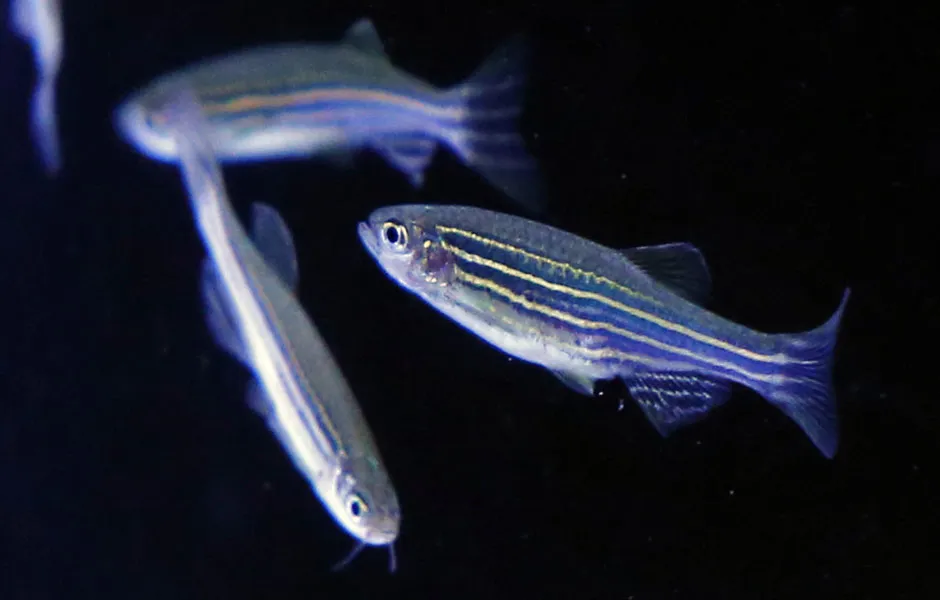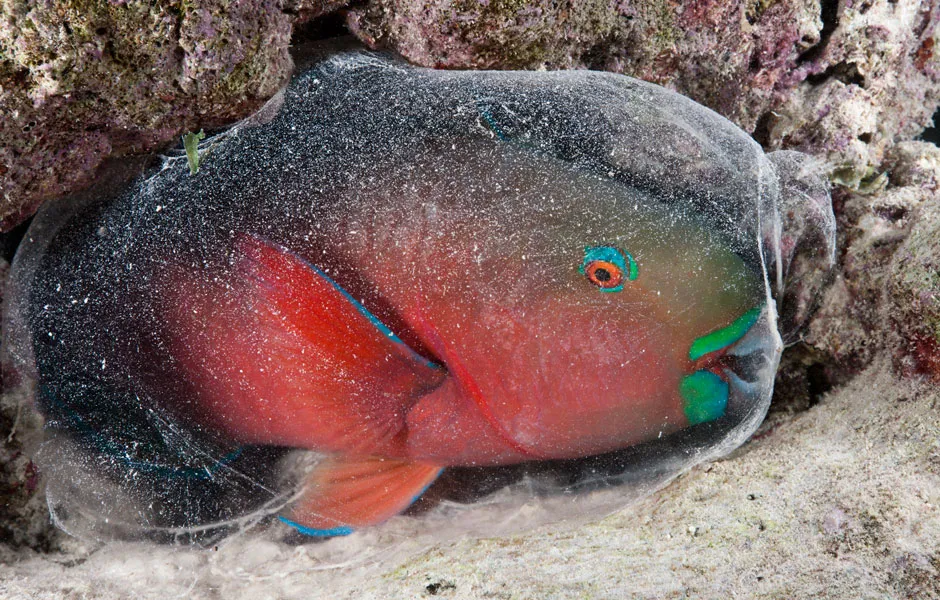Although it sounds like a small-scale question, solving the mystery of ‘do fish sleep?’ demands a deep and surprising dive into aquatic biology.
Yes: at surface-level, many fish seem like they are snoozing at times. They become less responsive, with their heart rates slowing and overall movement limited. But this rest isn’t the same as human shut-eye. For starters, fish can’t actually shut their eyes – they don’t have any eyelids.
Secondly, there’s one big neurological difference between fish and people. “Regions of the brain become much less active when humans sleep – particularly in the neocortex, the region that processes most high cognition. But fish don’t have a neocortex, so the two brains are very difficult to compare,” explains Dr Michael Webster, marine biologist at the University of St Andrews.
“It’s also very hard to know what is happening in a fish’s brain during sleep – you can’t just toss your goldfish into a CT scanner. Most of what scientists know about this topic has been found studying one type of fish, the zebrafish. Their translucent skin means that with a powerful enough microscope you can actually zoom in on individual brain cells and see how they’re responding.”
While this means researching the topic isn’t always plain sailing, science has still netted some remarkable findings about aquatic slumber in recent years.
Do fish sleep at night when it’s dark? Do they have sleep cycles?
Yes, many fish appear to have cycles of sleep and generally kip at night. As a study from Stanford University School of Medicine suggests, similar to humans, fish produce hormones that regulate sleep patterns and calibrate internal body clocks.
“This means that fish living in dark caves – even species evolved to have no eyes – can sleep in a regular daily pattern,” explains Webster.
“Interestingly, if fish are exposed to too much light and are kept awake for long periods, they’ll sleep longer the next day. Like people, they enjoy a lie in after a long night.”
Read more top questions about fish on BBC Science Focus
- Can fish see in the dark?
- Do fish ever get bored in fish tanks?
- How do schools of fish swim in perfect unison?
Remarkably, many species of fish can easily flip their sleep pattern if the need arrives. For instance, as landmark research in the Canadian Journal of Zoology found, white sucker fish can become nocturnal when separated from their school. Why? Although it’s too dangerous to swim by day alone, they’re much less likely to be hunted by predators at night.

You may know that humans can see their sleep cycle suffer in early parenthood. However, species such as the stickleback make that sacrifice look small fry. “To stop their eggs from suffocating, the male has to constantly fan oxygenated water over them – often for several days or weeks,” says Webster. “It’s very common for new fish fathers to die from exhaustion!”
Can fish sleep upside-down? And where do they nap?
The answer here varies between the sprawling species of fish around the globe (an estimated 33,230, according to leading body FishBase).
With that said, many fish have been known to swim down to the bottom of the aptly-named seabed – or the bottom of a fish tank or river – to sleep on their side. Species like the loach, however, have been known to sleep upside-down too (and cause any owner a lot of undeserved panic).
Some go further. To avoid being swept away by the ocean current, a number of coral fish, such as some damselfish, wedge themselves between reef branches. But while snugly tucked away, they can’t afford to remain completely still when asleep: to breathe they have to beat their fins up to twice the normal speed to generate a flow of oxygenated water across their gills.
Intriguingly, other fish have been known to build their own beds – but not one you’d want to relax on after a hard day’s work. “It may sound gross, but species like the parrotfish secrete a mucus bag around themselves before sleeping,” says Webster.

“It not only means prey will find it harder to smell them, but this cocoon protects them from parasites such as lice too. It’s extremely clever – but not something I’d recommend humans try at home.”
Read more top questions about fish on BBC Science Focus